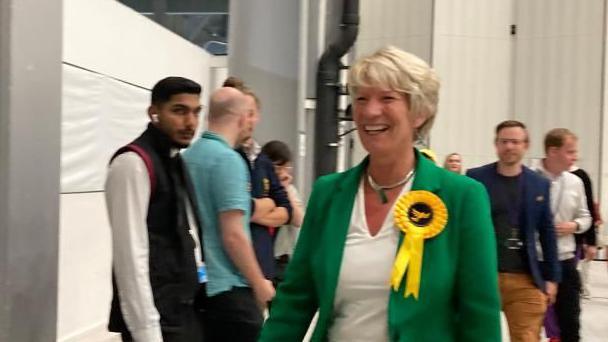'Three months after cell therapy I'm now cancer-free'
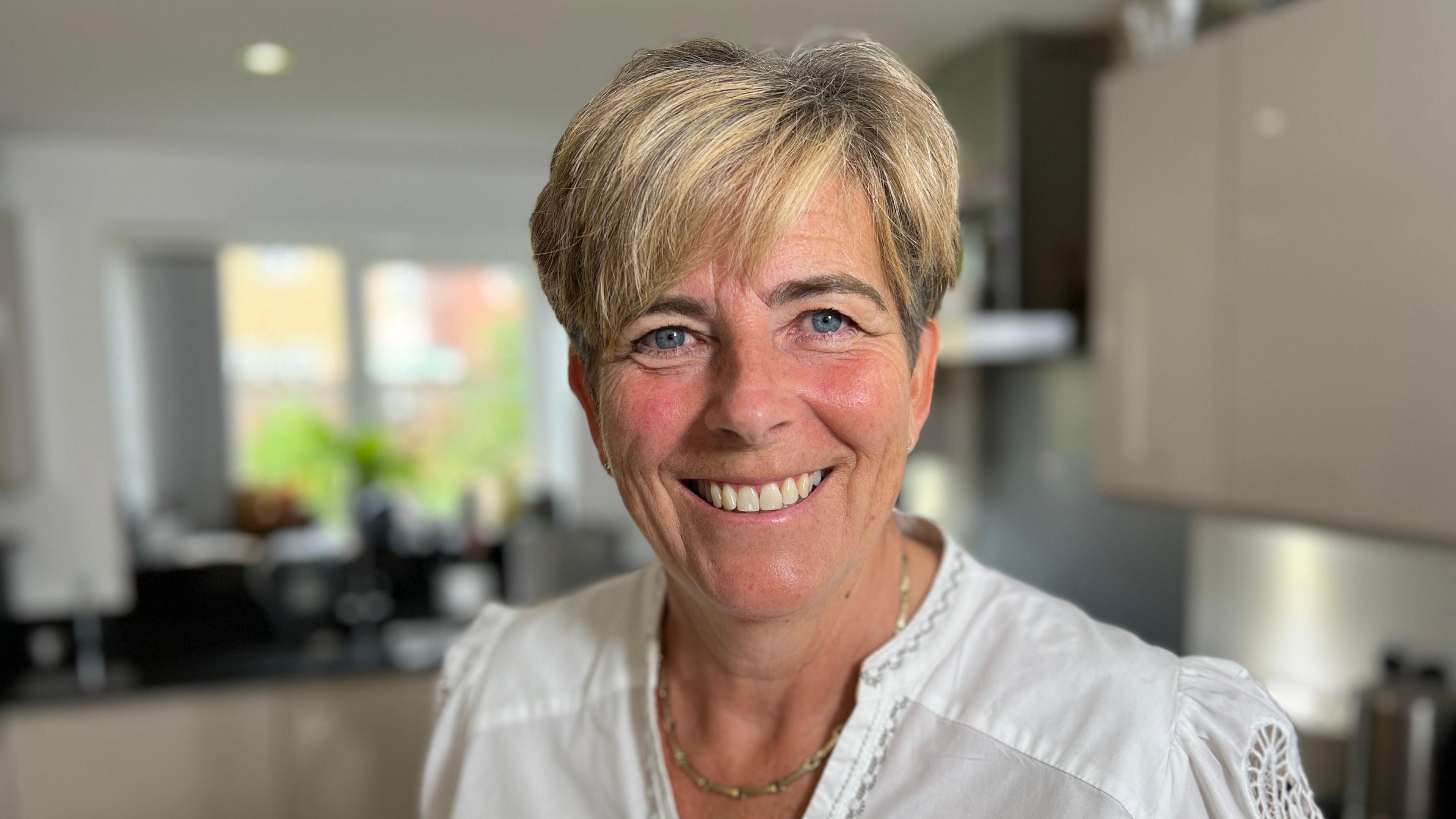
CAR-T cell therapy has given Lisa Noble a chance to meet her youngest grandchildren
- Published
The NHS and University of Cambridge have joined forces to create a new cellular therapy laboratory, which they hope will unlock new and potentially "kinder" treatments for people with cancer.
Due to open in the next 18 months, it aims to increase access to some existing therapies but also develop alternatives that target other forms of the disease.
For patients who have exhausted all other options, these treatments are seen as a last chance of beating their illness.
Lisa Noble, 58, is cancer free, but in 2020 it was a completely different story.
After four failed rounds of chemotherapy for B cell lymphoma,, external the professional driver from Bishop's Stortford, Hertfordshire, had about two weeks left to live.
She became one of the first patients at Addenbrooke's Hospital in Cambridge to be given CAR-T cell therapy, external, and it changed everything.
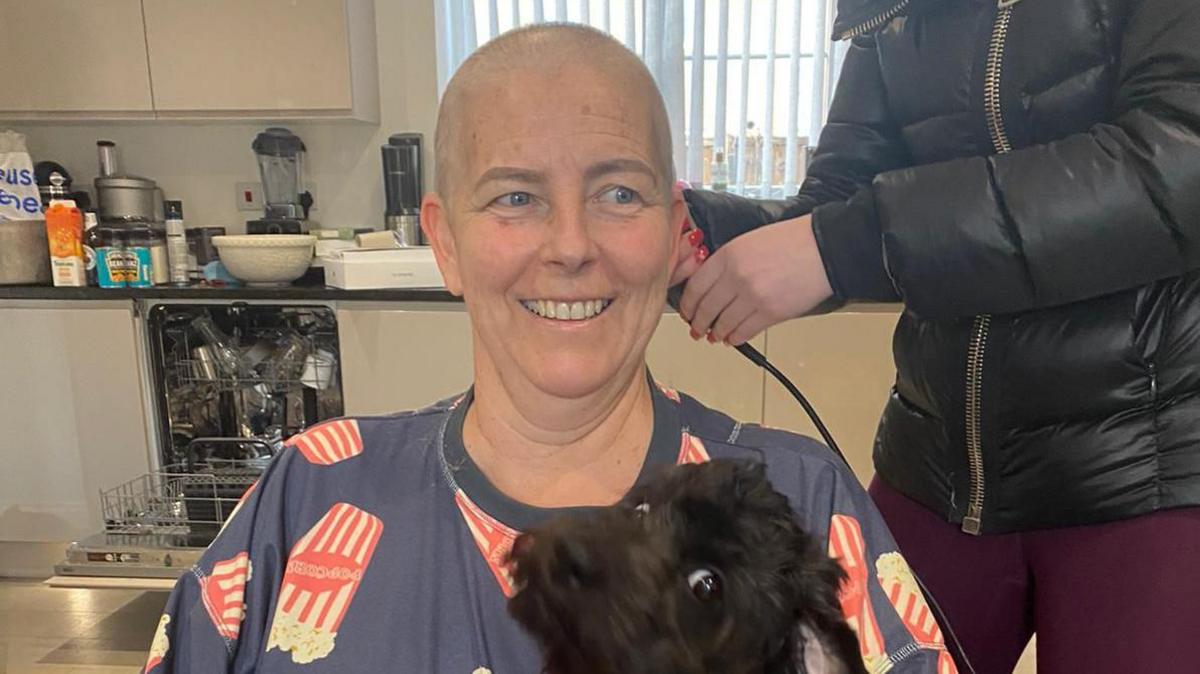
Ms Noble had been given just two weeks left to live, but is now cancer-free
"I'd been diagnosed with cancer after a routine cholesterol test. I had no symptoms at the time but it was a case of watch and wait, and two years later I found a lump in my neck," says the mother of five.
"CAR-T cell therapy was my last chance, but three months after I had it I was cancer-free and I still am.
"It's amazing. I wouldn't have been able to celebrate my 25th wedding anniversary or see three of my grandchildren born without it."
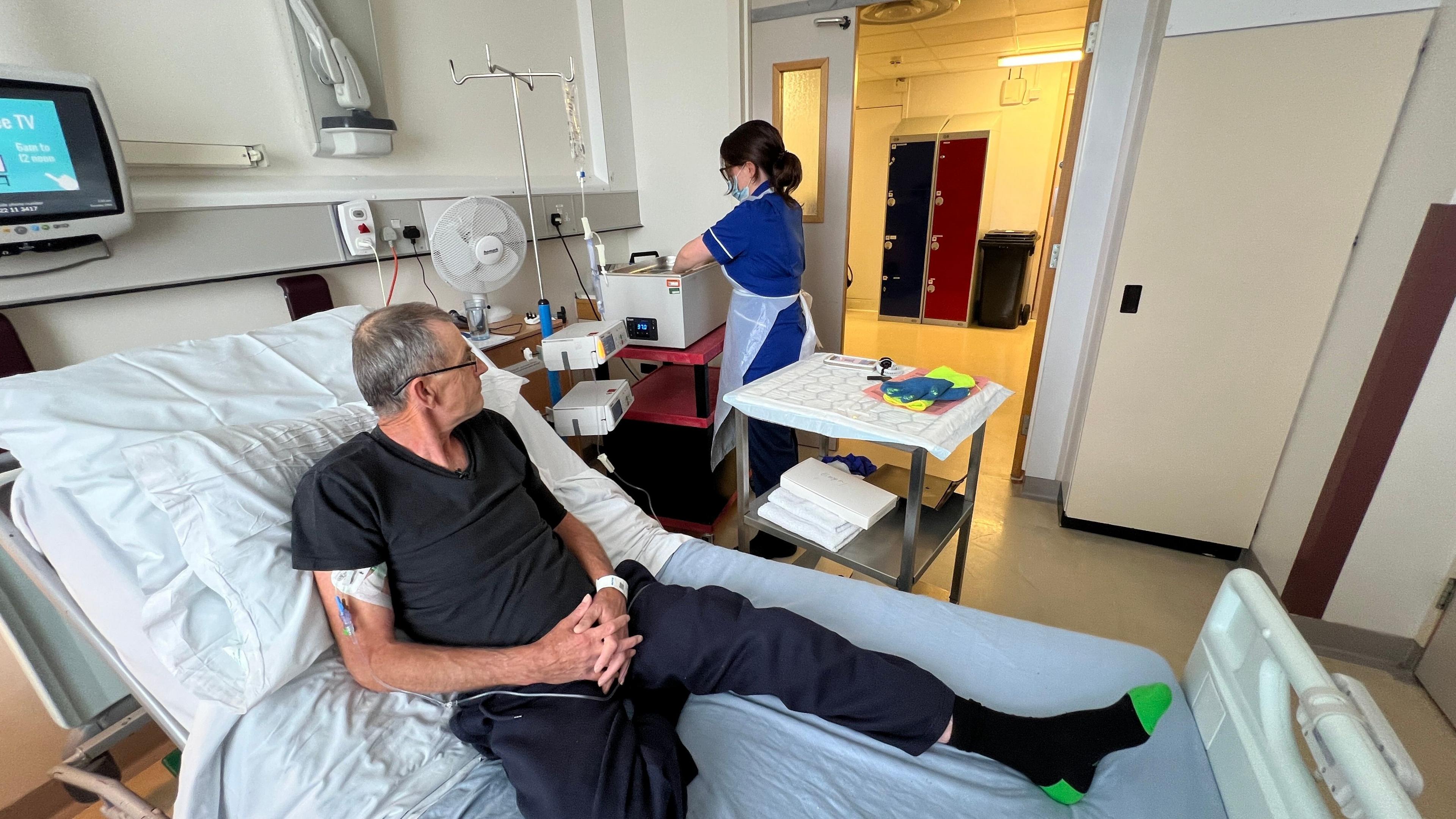
Patient Tommy Richards is undergoing CAR-T therapy at Addenbrooke's Hospital
CAR-T cell therapy is a personalised treatment, currently used for some blood cancers. It is complex and expensive and so only offered to those, like Mrs Noble, who do not respond to traditional treatment.
It worked by reprogramming part of her immune system so that it better targeted and attacked the disease.
The first stage is for the patient to give a sample of their blood.
In a lab, their T cells - a type of white blood cell - are genetically modified to help them detect the cancer. After they have been left to multiply, they are re-infused back into the patient through a drip and left to destroy the disease.
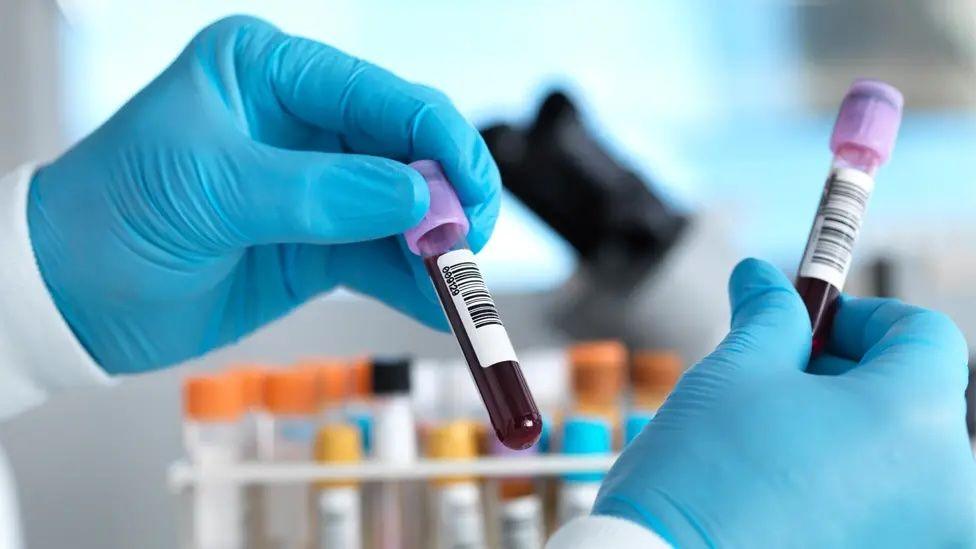
A new lab will be used to genetically modify cells for personalised treatments
"We've treated 100 patients now and it's been going very well, but there is part of the process that we can't do," says Dr Ben Uttenthal, the consultant haematologist who leads the CAR-T programme at Addenbrooke's.
"Most of the cells are sent to the USA or Netherlands to be modified, but in about 18 months that should all change thanks to our new cellular therapy lab."
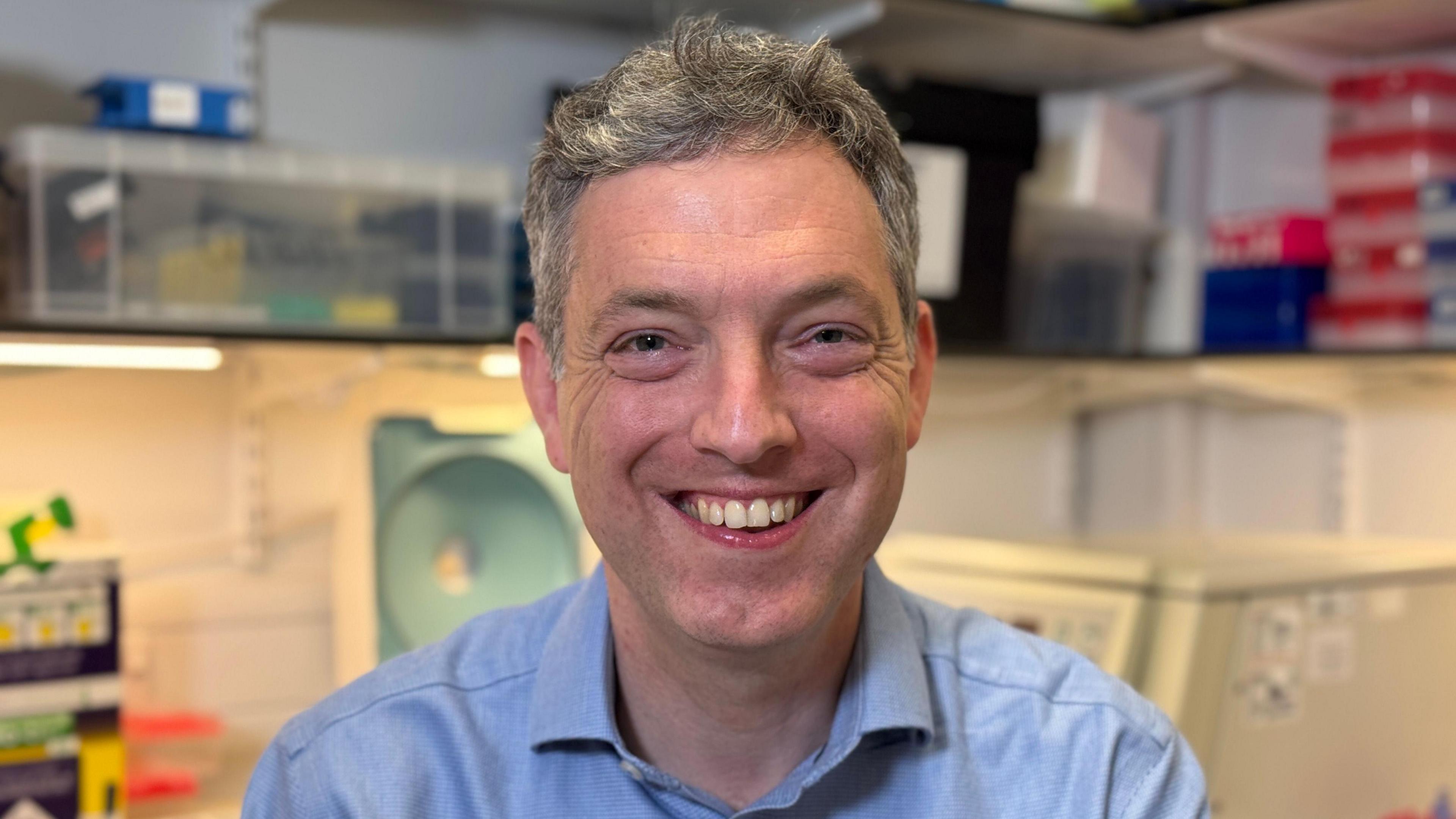
Dr Ben Uttenthal hopes new generations of CAR-T treatment will be developed in Cambridge
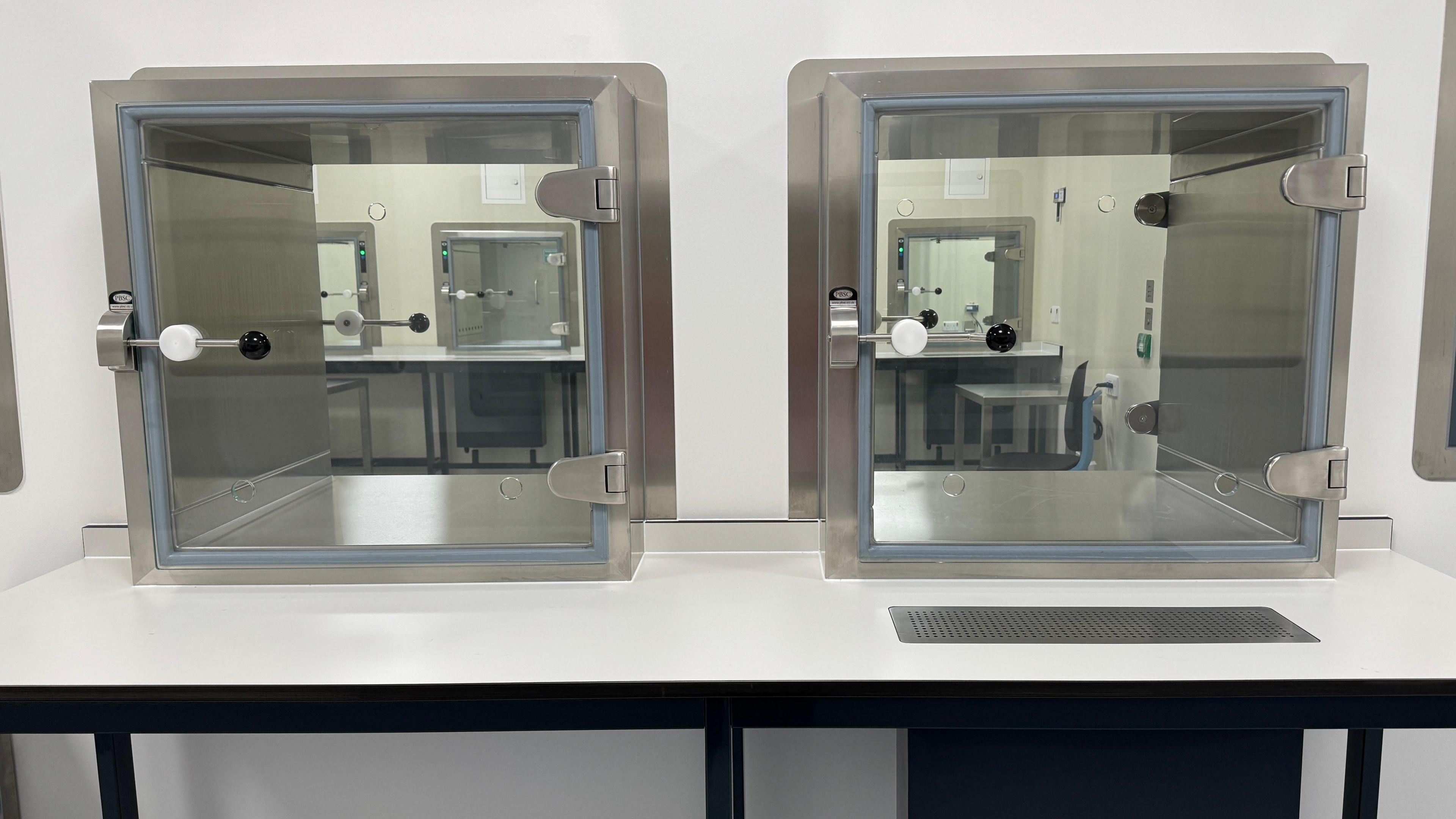
A new suite of so-called "clean rooms" is due to open at the Cambridge Cellular Therapy Lab in 2025-26
The lab, being built by the University of Cambridge and run by the NHS, is a short walk from the hospital.
It will bring together the city's world-leading researchers and clinicians to improve access to current CAR-T cell therapies. The lab will also develop new versions that could target different cancers and potentially different diseases.
"CAR-T therapy has been most successful on B cell cancers - when our B cells go wrong and turn into cancer cells," Dr Uttenthal explains. "But there are other ways they can go wrong.
"B cells normally make antibodies, but if they make one which attacks part of our own body, that creates an auto-immune disease, like Lupus, and there's been some really promising data to show CAR-T could also help conditions like that.
"These are all things we're hoping to trial in Cambridge."
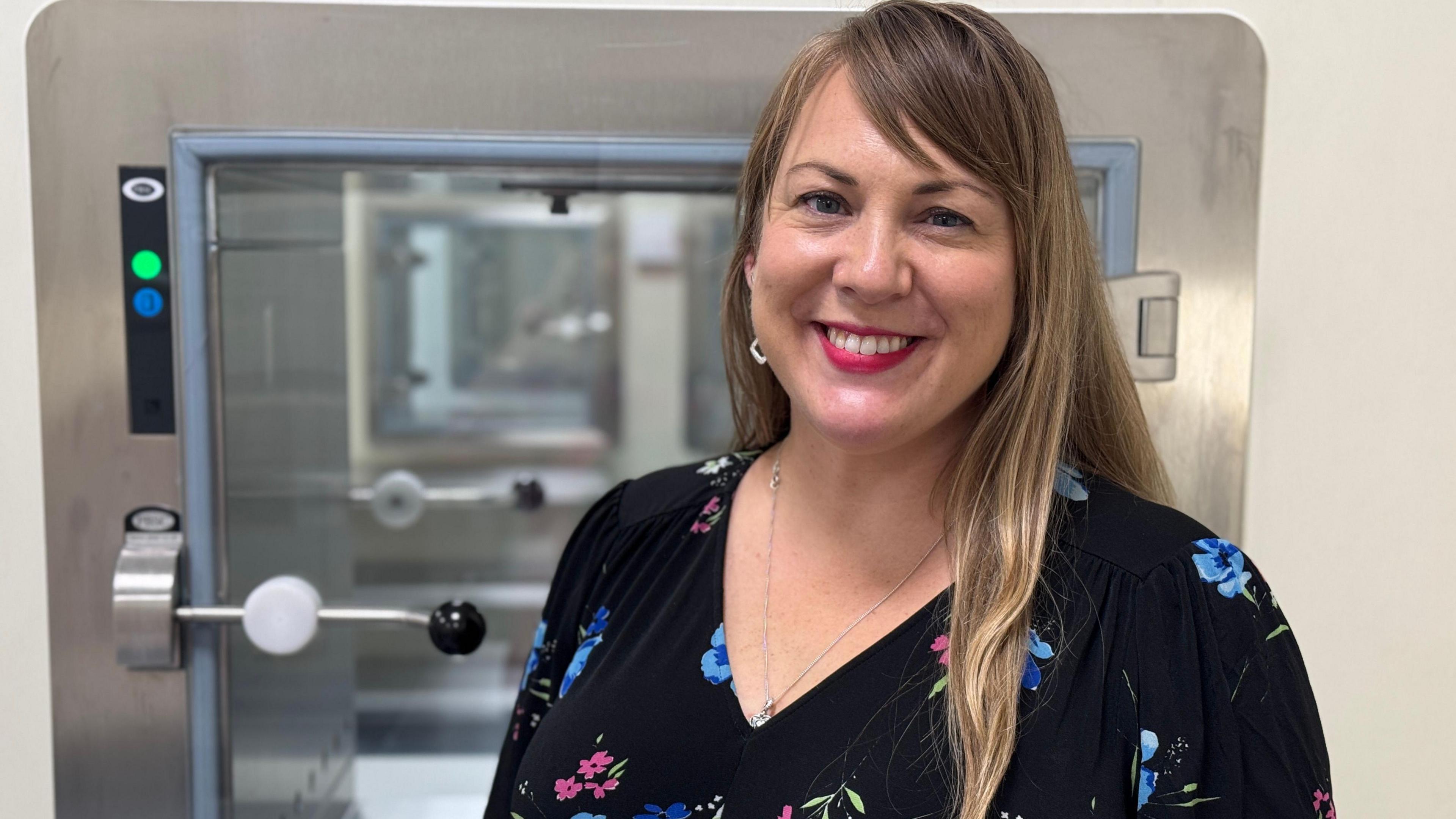
Sarah Albon says the new lab should save the NHS money and give patients better access to treatment
The director of the Cambridge Cellular Therapy Lab, Sarah Albon, says the facility will also help the NHS save money, because "at the moment the NHS has to buy these therapies in, but this lab will allow us to manufacture them ourselves".
"It will also be better for patients, who'll get personalised treatments quicker and their monitoring visits will be easier," she says.
"Patients here will get early access to clinical trials, but then, in time, we hope to manufacture therapies for use across the world."
'I'd have the treatment again'
Scientists will also work on developing a new generation of therapies that are "as effective but kinder and less toxic" for the patient," says Dr Uttenthal.
"Around 30% of our patients who have CAR-T therapy might need some time in the intensive care unit.
"We know almost all of those will become long-term survivors, but this is an arduous treatment."
Lisa Noble was among that 30%.
"A day after re-infusion, I stopped being able to write. I had no strength. I couldn't walk for weeks and my children had to carry me up the stairs," she says.
"My daughter pointed at the curtains and asked me what they were. I said 'bridesmaids'. I just couldn't remember the words.
"It took me about a year to feel better. I'm still on some medication, but I'd have the treatment again if I needed it."
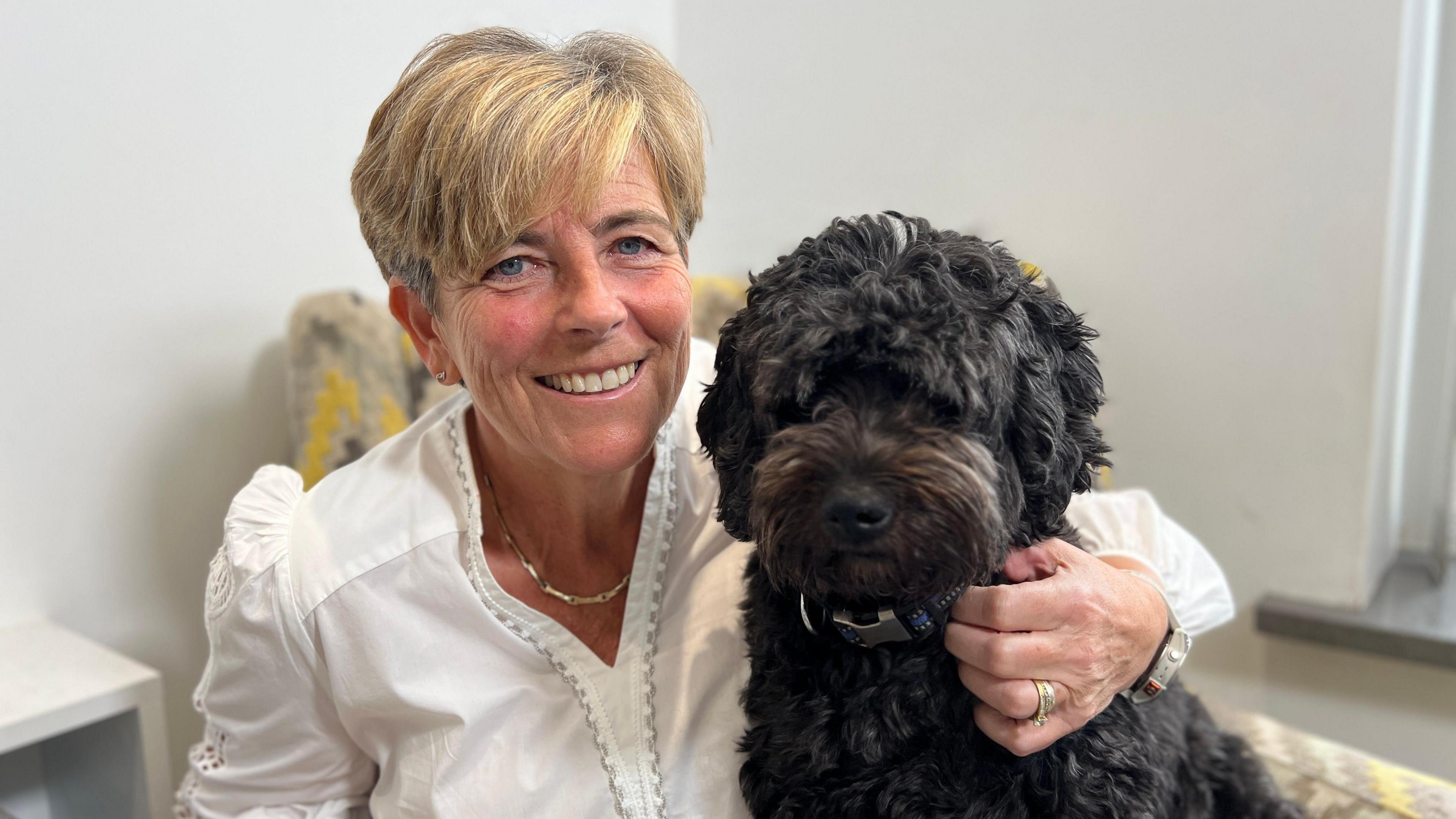
Lisa Noble suffered serious side effects from CAR-T therapy, but says she would "100% have it again" if needed
Tommy Richards is the latest patient to undergo CAR-T therapy at Addenbrooke's.
He is aware of the possible complications, but it is a risk he feels he must take.
"I've been on quite a long journey with this non-Hodgkin lymphoma, external," says the 63-year-old, from March in Cambridgeshire.
"I've had a bone marrow transplant, but this is my second chance and I'm hoping it does the trick.
"Not everyone gets this opportunity, so I see it as a privilege."
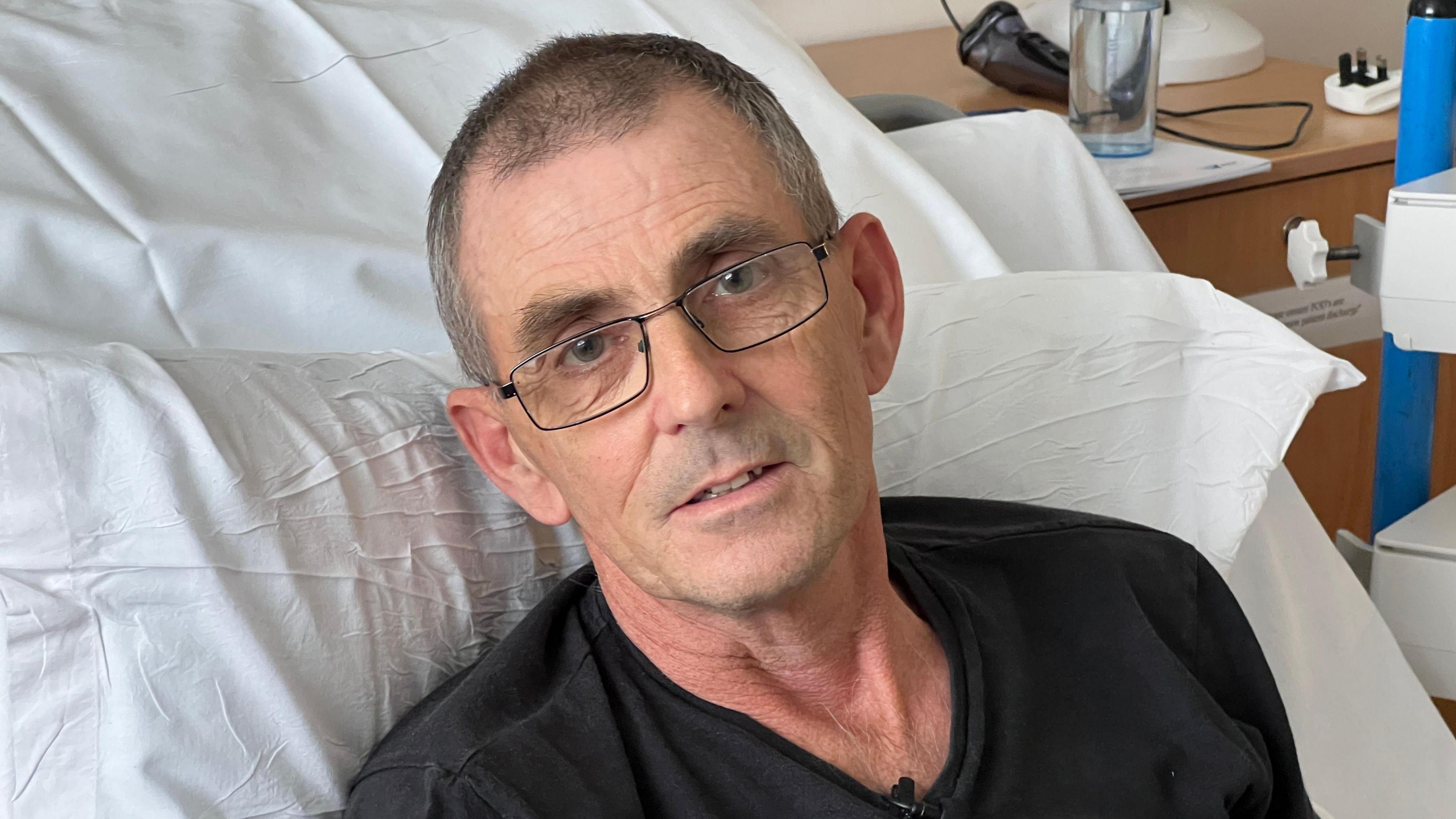
Tommy Richards, 63, is having CAR-T treatment for non-Hodgkin lymphoma
Cambridge University Hospitals NHS Foundation Trust, external has just been awarded £1.4m from the National Institute of Health Research towards equipment for the lab, which should be operational by 2026.
Get in touch
Do you have a story suggestion for Cambridgeshire?
Follow Cambridgeshire news on BBC Sounds, Facebook, external, Instagram, external and X, external.
You may also be interested in
- Published15 October 2024
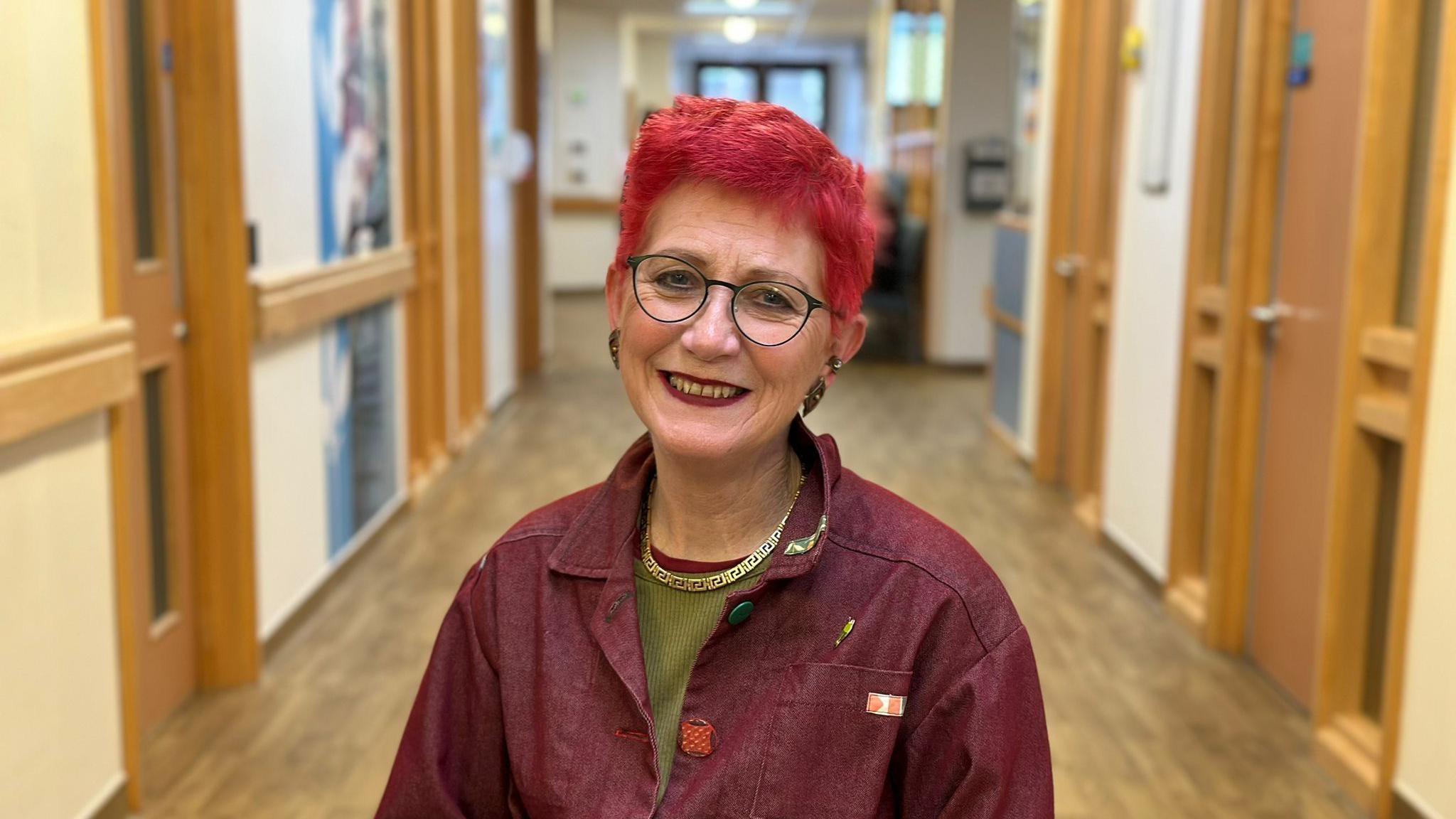
- Published2 April 2024
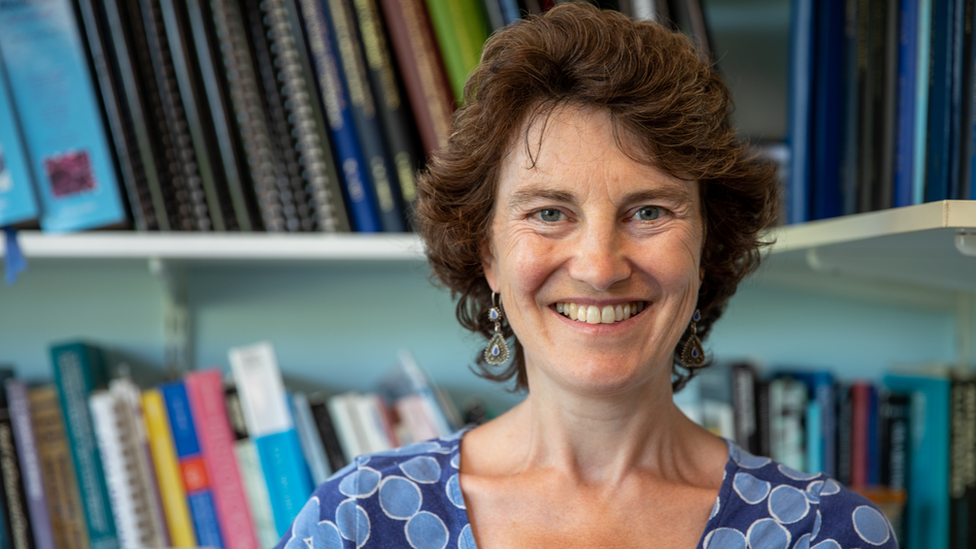
- Published31 July 2024
